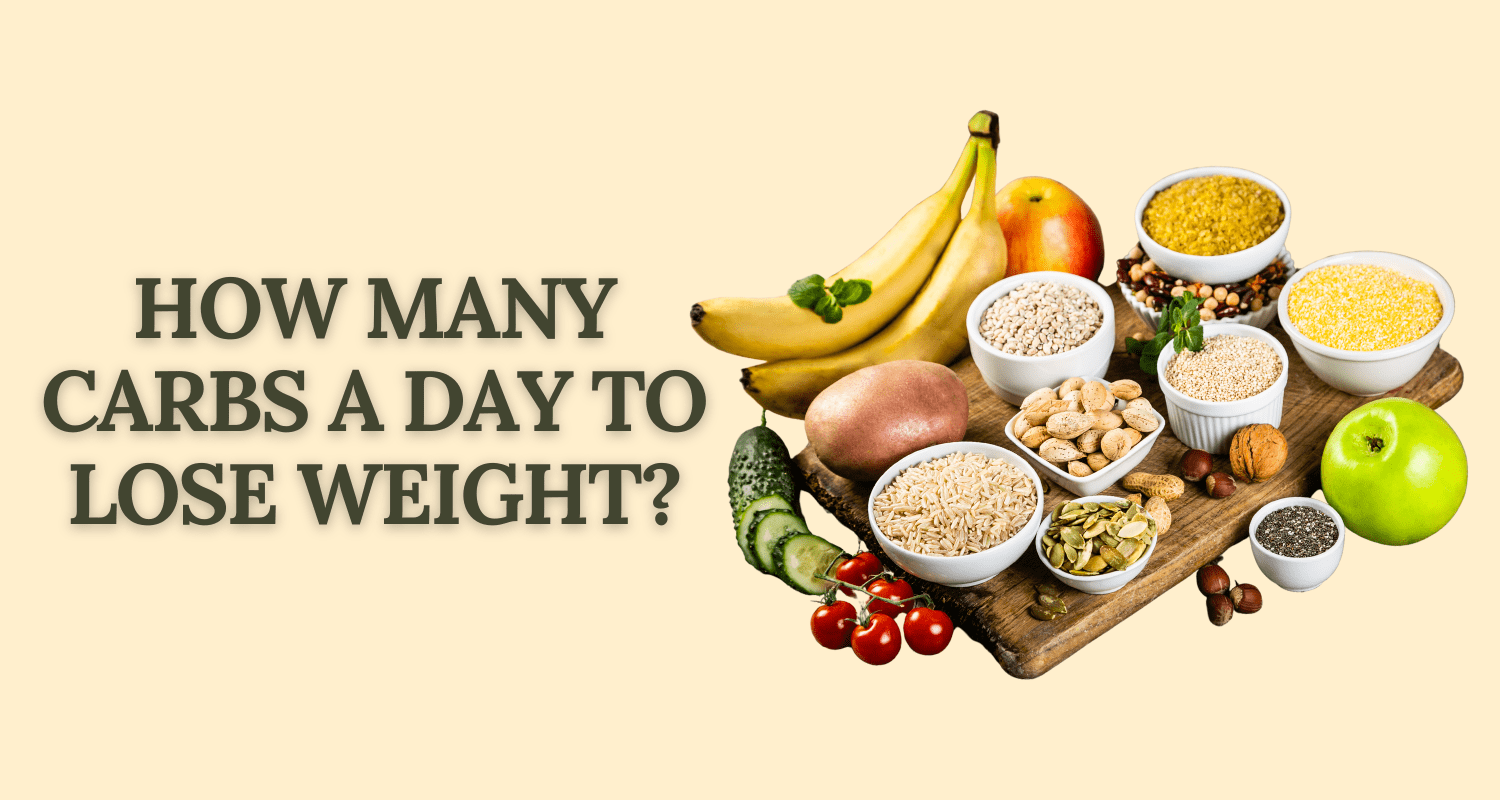Did you know about 1 in 10 women of childbearing age in America have polycystic ovary syndrome (PCOS)?
This hormonal issue makes losing weight tough. But there’s a silver lining. For how to lose weight with PCOS by using certain strategies, you can better control your weight and boost your health, even with PCOS.
This article will dive into tips for changing your diet, exercising, and adjusting your lifestyle to lose weight effectively while managing PCOS.
Let’s delve into how to lose weight with PCOS.
Key Takeaways:
- How to lose weight with PCOS? Reducing carb intake can help manage PCOS by impacting insulin levels and promoting weight loss.
- Incorporating high-fiber foods into your diet can increase feelings of fullness, reduce insulin resistance, and support weight management.
- Consuming enough protein is crucial for stabilizing blood sugar levels, reducing cravings, and regulating hunger hormones in individuals with PCOS.
- Including healthy fats in your diet can increase satiety and enhance weight loss efforts.
- Consuming probiotic-rich foods can improve gut health, metabolism, and weight management in individuals with PCOS.
Reduce Your Carb Intake
Managing polycystic ovary syndrome (PCOS) means working on your diet to help with weight and health. One key step is to cut back on carbs. This helps with insulin levels and reaching weight loss goals.
The Connection Between Carb Intake and PCOS
Carbs are turned into sugar in your body. This sugar makes your blood sugar levels go up. To deal with this, your body produces insulin to move sugar into cells for energy.
If you have PCOS, your body might not respond well to insulin. This can lead to the production of too much insulin. Extra insulin can lead to more fat storage and make losing weight hard.
Managing Insulin Resistance Through Carb Reduction
Reducing carb intake can help with insulin resistance. It can also help you manage your weight better. Eating less carbs can keep your blood sugar and insulin levels more even.
This means your body might use fat for energy better. This can help with weight loss and make you healthier overall.
Tips for Reducing Carb Intake
Starting a low-carb diet might feel tough. But, with some tips, cutting back on carbs can be done:
- Choose whole, unprocessed foods like fruits, vegetables, lean proteins, and healthy fats.
- Eliminate sugary drinks. Drink water, herbal tea, or unsweetened drinks instead.
- Pick whole grains over refined grains. Go for whole wheat bread, brown rice, and more.
- Watch your portion sizes. Adjusting how much you eat can help cut down on carbs.
Lowering your carb intake can improve your insulin levels and fight insulin resistance in PCOS. Combined with exercises and stress management, this change can lead to better weight control and health.
Get Plenty of Fiber
A high fiber diet is key for those with PCOS wanting weight loss and better health. It keeps you feeling full after meals, cuts down insulin resistance, and helps with body shape. High fiber diet: Including foods full of fiber in your meals helps with losing weight. Whole grains, fruits, and veggies are top choices for adding fiber to your diet.
Feelings of Fullness
Fiber makes you feel full after eating. It takes longer for your body to break down fiber-rich meals. This makes you feel satisfied, helping avoid overeating and snack breaks. This is great for managing your weight.
Reduced Insulin Resistance
Having high fiber can lower insulin resistance in PCOS. It helps the body handle blood sugar better. This is good for keeping your weight under control and staying healthy.
Improved Body Composition
Fiber helps with losing weight and shapes your body better. It keeps your digestion running smoothly and your gut healthy. A healthy gut means your body can absorb nutrients well, helping you lose weight more effectively.
Fiber intake for PCOS: Vary your fiber sources by enjoying different types of whole grains, like oats and quinoa. Don’t forget to add lots of fruits and veggies to your meals. Trying new recipes and snack ideas can make adding fiber fun.
Eating lots of fiber improves how you lose weight and boosts your health with PCOS. Fiber-rich foods are good for fullness, lessening insulin resistance, and better body shape. They offer essential nutrients too.
Eat Enough Protein
Eating enough protein is important for keeping your blood sugar steady. It can also help with weight loss if you have PCOS. Protein helps you feel full, burns more calories, and helps control your hunger.
Adding protein-rich foods to your meals can help you manage your weight better.
Here are some top choices for those with PCOS:
- Eggs: Eggs are a versatile and affordable source of protein.
- Nuts: Almonds, walnuts, and peanuts have both protein and good fats.
- Dairy: Greek yogurt, cottage cheese, and milk have plenty of protein.
- Meat: Chicken, turkey, and lean beef are excellent sources of protein.
- Seafood: Salmon, tuna, and sardines are high in protein and omega-3s.
Adding these protein sources to your meals and snacks can help with your weight goals. Plus, they make your diet more tasty and nutritious.
Eat Healthy Fats
For those trying to lose weight with PCOS, adding healthy fats to your diet can help. These fats make you feel full longer, which can stop you from eating too much. Plus, they are full of important nutrients that boost your health.
You have plenty of great choices for healthy fats. Include foods like avocado, olive oil, and nut butter in your meals. Not only do they taste good, but they also bring a lot of health perks.
Incorporating Healthy Fats in Your Diet:
- Add sliced avocado to your salads or as a topping on your toast.
- Cook with olive oil or coconut oil instead of using vegetable oils.
- Include a spoonful of nut butter, like almond or peanut butter, in your smoothies or as a spread on whole grain bread.
- Snack on a handful of nuts, such as almonds or walnuts, for a satisfying and nutritious pick-me-up.
Mixing healthy fats into your meals and snacks can help make protein-rich foods more filling. When you eat them together, they support losing weight and staying healthy.
Eat Fermented Foods
Gut health is vital for processing food and controlling weight. For those with PCOS, issues in gut bacteria can hinder weight management. Adding probiotic foods to your meals supports a healthy gut and weight control.
The Benefits of Probiotics for PCOS
Probiotics are good bacteria and yeasts that offer health perks. People with PCOS benefit from them by balancing their gut bacteria. A healthier digestion helps with metabolism and keeping weight in check.
Research shows probiotics improve how PCOS patients process insulin, handle blood sugar, and curb hunger. Eating foods rich in probiotics enhances gut health to aid your weight goals.
Types of Fermented Foods
Fermented foods, rich in probiotics, are a natural choice. The fermentation process encourages the growth of good bacteria. They make a tasty, helpful addition to a diet focused on gut health and managing weight.
- Yogurt: Go for plain, unsweetened kinds with live cultures. Greek yogurt is top-notch, offering more protein with fewer carbs.
- Kefir: It’s like thin yogurt but packed with diverse beneficial bacteria.
- Sauerkraut: This fermented cabbage packs a probiotic punch and adds zest to meals.
Adding these foods to your diet injects good bacteria into your system. This boosts digestion and helps with keeping weight in line.
Considerations and Precautions
Getting probiotics from food is a solid choice for PCOS folks. But, it’s smart to talk to a health expert first, especially with special diets or health conditions.
Choose fermented items without too much added sugar. This prevents blood sugar issues.
By eating probiotic-rich ferments, you can better your gut’s health, aid in weight control, and uplift your health overall.
Limit Processed Foods and Added Sugars
It’s key to cut down on processed foods and added sugars for people with PCOS. These can spike blood sugar and lead to insulin resistance. It’s best for folks with PCOS to eat less sugar and stay away from refined carbs. This means fewer desserts, fast food, and snacks to help keep a balanced weight.
- Choose whole, unprocessed foods like fruits, vegetables, lean proteins, and whole grains.
- Avoid packaged snacks, sugary beverages, and processed meats that are often high in added sugars and unhealthy fats.
- Read food labels carefully to identify hidden sugars and additives.
Focusing on whole, healthy foods is great for managing PCOS symptoms. It helps lower blood sugar and handle weight better. These food changes are a big step towards feeling healthier and happier.
Exercise Regularly
Exercise is really important when trying to lose weight, especially for people with PCOS. People with PCOS might lose weight more slowly. But, exercise has a lot of good effects like making your body better and helping it use insulin well.
To help with weight, aim to do 150 minutes of exercise every week. You can try brisk walks, ride a bike, swim, or join classes. It’s all about finding fun, consistent activities.
Moving your body not only burns calories. It also builds strong muscles, which helps your metabolism. Plus, when you exercise, your body releases feel-good chemicals. This makes you happier and less stressed, which is great for your health.
Exercise Guidelines for PCOS
To get the best health and weight loss results with PCOS, follow these tips:
- Pick exercises that get your heart rate up and make you sweat. This could be jogging, dancing, or sports.
- Do muscle-strengthening activities twice a week. Use weights or your body, like with squats and push-ups.
- Do activities that make you more flexible and steady. Like yoga, Pilates, or tai chi.
- Over time, make your workouts longer and harder to see more benefits.
- Rest and listen to your body. Take it easy when needed and adjust your plan as necessary.
Always talk to a doctor before starting a new workout plan, especially if you have health issues. They can help make sure it’s safe for you.
Stick to your plan and keep at it. Choose exercises you like and add them to your schedule. This way, you’ll be on track to reach your weight goals and feel better overall.
Get Enough Sleep
Getting enough sleep is key for your health and helps in managing weight, especially for those with PCOS. If you sleep well, you’re likely to lose more weight. But if you don’t get enough sleep, your hormones can get out of whack. This leads to feeling more hungry and having more cravings. So, it’s super important for people with PCOS to make sure they sleep enough.
People with PCOS often find it hard to sleep well. Issues like sleep apnea and insomnia are more common among them. These problems can ruin the quality and amount of sleep you get. It’s really important to deal with these sleep issues to feel better and to manage your weight more effectively.
Try to sleep 7 hours every night. Setting a regular sleep schedule and making your bedroom a cozy place can really help you sleep better.
Here are some ways to get the sleep you need when you have PCOS:
- Keep a consistent sleep schedule, going to bed and waking up at the same time daily. This can help your body’s clockwork better, making it easier to sleep.
- Before bed, do things that help you relax, like read a book, take a warm bath, or do breathing exercises. This tells your body it’s almost sleep time.
- Avoid drinks with caffeine or activities like smoking before you sleep. They can keep you awake.
- Make your bedroom a place that’s cool, dark, and quiet. A good mattress and pillows can also help.
- Stay away from screens like phones or tablets for at least an hour before bed. The light from these gadgets messes with your sleep.
Putting sleep first and using these tips can help you manage your weight better with PCOS. It also boosts your health overall.
Manage Your Stress
Chronic stress can hurt how well we manage our weight and health with PCOS. It could make us gain weight and mess with our cortisol levels. This makes it hard to manage our weight. So, it’s really important to learn ways to lower stress to help with losing weight with PCOS.
Yoga is a great way to reduce stress. It involves moving your body, breathing deeply, and calming your mind. Doing yoga often can help lower your stress and improve your cortisol levels. This can help with managing your weight if you have PCOS.
Meditation is also really helpful for stress. Just sitting quietly, breathing, and being aware can lower your stress a lot. Studies show that meditating can make your cortisol levels better, lift your mood, and make you feel better if you have PCOS.
Doing things you love can lower your stress too. This could be listening to music, doing art, being outside, or enjoying a hobby. Having fun activities in your day can make you less stressed and happier.
Also, taking care of yourself and having a balanced life is key. This means getting enough sleep, taking deep breaths, taking breaks, and having support from others when you need it. By doing this, managing stress with PCOS becomes easier. You’ll also feel better and healthier over time.
Consider Medication
In some cases, PCOS symptoms may need medication help. PCOS changes your hormone balance, making weight loss hard. Yet, some drugs can help with PCOS worries, making it easier to manage weight.
Blood Sugar Medication
Blood sugar medication like Metformin is often used for PCOS. It fights insulin resistance, which is common in PCOS. This helps with weight struggles by making the body more sensitive to insulin.
Weight Management Medication
Weight management medication can help too. It aids in controlling hunger and making us feel full easily. These drugs are great for those working hard to lose weight, alongside diet and exercise plans.
Remember, talking with a healthcare provider is key before starting any medication. They can guide you to the best choice for your needs. And, always use meds with lifestyle changes for the best outcome.
Conclusion
Losing weight with PCOS can be tough, but it’s possible. But, for how to lose weight with PCOS by following certain steps, you can see results. Cut back on carbs, eat more fiber, and include healthy fats and protein in your meals. These steps help you manage your weight better with PCOS.
Also, make sure you exercise regularly, sleep enough, and find ways to manage stress. These are key, for how to lose weight with PCOS and living a healthy weight.
It’s a good idea to get advice from a doctor and maybe try some medications and the best vitamins for women with PCOS too. But always remember to focus on what works for you and talk to your doctor for the best plan.
By using these strategies, you can improve your health and feel better overall. Losing weight with PCOS might not happen quickly, but stay consistent and patient. With hard work and these strategies, you can reach your weight goals and enjoy a better life.
FAQs
How to lose weight with PCOS?
Focus on a balanced diet, regular exercise, and managing insulin levels. Consult a healthcare provider for personalized advice.
How can a PCOS patient lose weight fast?
Adopt a low-carb, high-protein diet, engage in high-intensity interval training (HIIT), and maintain consistent sleep and stress management routines.
Is it harder to lose weight with PCOS?
Yes, hormonal imbalances and insulin resistance can make weight loss more challenging for individuals with PCOS.
How to stop PCOS weight gain?
Maintain a healthy diet, exercise regularly, monitor insulin levels, and consider medication or supplements as advised by a healthcare professional.
What does a PCOS belly look like?
A PCOS belly often appears as increased abdominal fat, resembling a bloated or distended stomach.
How to remove PCOS belly?
Combine a healthy diet with regular cardiovascular and strength training exercises to reduce overall body fat, including abdominal fat.
What not to eat in PCOS?
Avoid refined carbs, sugary foods, processed snacks, and trans fats to help manage PCOS symptoms and support weight loss.
Disclaimer: This content, including advice, provides generic information only. It is not a substitute for a qualified medical opinion. Always consult a specialist or your doctor for more information. Nutrition Cult does not claim responsibility for this information.




